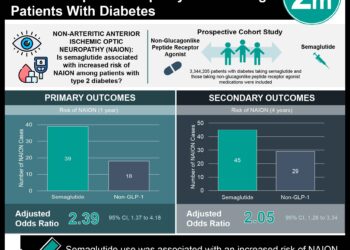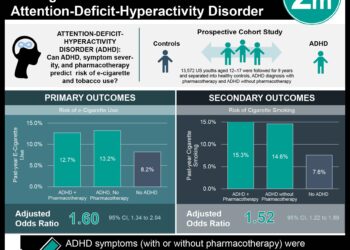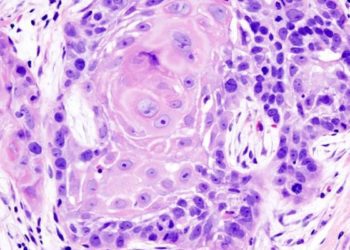2 Minute Medicine Rewind December 14 – December 21, 2014
In this section, we highlight the key high-impact studies, updates, and analyses published in medicine during the past week.
Cytisine versus Nicotine for Smoking Cessation
When compared with placebo, cytisine, a partial nicotinic acetylcholine receptor agonist, has been shown to nearly double the chance of smoking cessation at 6 months. This study compared cytisine with nicotine replacement therapy. In this randomized control trial, 1310 adult smokers were randomly assigned to receive either 25 days of cytisine therapy or 8 weeks of nicotine-replacement therapy. Investigators found that after 1 month, 40% of the intervention arm attained continuous abstinence versus 31% of the control arm receiving nicotine replacement therapy (risk difference 9.3%, 95% CI 4.2 – 14.5). Cytisine was moreover superior to nicotine-replacement therapy for maintaining continuous abstinence at all measured time points: at 1 week, 2 months, and 6 months. In subgroup analysis, this effect difference was seen in women but interestingly not among men. There were more self-reported adverse events after 6 months with cytisine than with nicotine replacement therapy (288 events among 204 participants versus 174 events among 134 participants). These events primarily included nausea, vomiting, and sleep disorders. This study therefore shows that cytisine when combined with standard behavioral support may be more effective than nicotine-replacement therapy for smoking cessation, although with a higher rate of self-reported adverse events.
In 2009, the Antithrombotic Trialists’ Collaboration (ATTC) concluded that based on data from several primary prevention trials, low-dose aspirin use was associated with significant reduction in serious vascular events at the risk of increased gastrointestinal and extracranial bleeding. Investigators sought to confirm these effects in a large Japanese patient cohort composed of patients 60 years or older with hypertension, dyslipidemia, or diabetes mellitus. In this randomized control trial, 14,464 patients were randomized to either 100mg aspirin per day or no aspirin and were followed for up to 6.5 years. This trial was stopped prematurely for futility. Researchers found that after a median follow-up of 5.02 years, there was no significant difference between the groups for the primary composite outcome of death from cardiovascular causes, nonfatal stroke, and nonfatal myocardial infarction (2.77% for aspirin 95% CI 2.40%-3.20%, 2.96% for no aspirin 95% CI 2.58%-3.40%, hazard ratio 0.95, 95% CI 0.77-1.15, p = 0.54). However, aspirin did significantly reduce the incidence of nonfatal myocardial infarction (HR 0.53, 95% CI 0.31-0.91, p = 0.02) and transient ischemic attacks (HR 0.57, 95% CI 0.32-0.99, p = 0.04), but at the increased risk of extracranial hemorrhage requiring transfusion or hospitalization (HR 1.85, 95% CI 1.22-2.81, p = 0.004). This study therefore showed that once daily, low-dose aspirin did not appear to reduce the risk of a composite outcome of cardiovascular death, nonfatal stroke, and nonfatal myocardial infarction in a population of Japanese patients aged 60 years or older with risk factors for atherosclerosis.
The glycemic index is the degree by which a certain food will raise a patient’s glucose. It is hypothesized that low glycemic index foods may increase insulin sensitivity and be protective for cardiovascular disease. In this randomized crossover trial, 163 overweight adults received at least 2 of 4 different diets: high glycemic index + high carbohydrate, low glycemic index + high carbohydrate, high glycemic index + low carbohydrate, low glycemic index + low carbohydrate. Each diet was followed for 5 weeks and followed the DASH-type diet. Investigators found that among those eating a high carbohydrate diet, a low compared with high glycemic index diet decreased insulin sensitivity from 8.9 to 7.1 units (-20%, p = 0.002), increased LDL from 139 to 147 (6, p < 0.001), but did not affect HDL, triglyceride, or blood pressure levels. There was no difference between low or high glycemic index diets for low carbohydrate diets except for a lower triglyceride level from 91 to 86 mg/dL (-5%, p = 0.02). When comparing the low glycemic index + low carbohydrate diet to the high glycemic index + high carbohydrate diet, there was no significant difference in insulin sensitivity, systolic blood pressure, LDL, or HDL. However triglycerides were lower from 111 to 86 mg/dL (-23%, p < 0.001). This study therefore showed that 5 weeks of a low glycemic index DASH-type diet largely did not add any additional benefit to a DASH-type diet in helping mitigate the risk for cardiovascular disease or diabetes.
Latanoprost for open-angle glaucoma (UKGTS): a randomised, multicentre, placebo-controlled trial
Open-angle glaucoma is a chronic progressive optic neuropathy that is often treated by lowering intraocular pressure with one of several medications such as latanoprost. However, the effects of this pressure lowering on preserving vision have yet to be formally assessed. In this randomized control trial, 516 patients with newly diagnosed open-angle glaucoma were randomized to receive either latanoprost or placebo eye drops. Researchers found that after 24 months, mean intraocular pressure was reduced by 3.8 mmHg in the intervention group and by 0.9 mmHg in the placebo group. Patients receiving latanoprost had significantly longer visual field preservation in comparison to the placebo group with an adjusted hazard ratio of visual field deterioration within 24 months of 0.44 (95% CI 0.28-0.69, p = 0.0003). This study is the first randomized placebo controlled trial to show that lowering intraocular pressure with medication in patients with open-angle glaucoma can help preserve the visual field.
The Ebola epidemic has resulted in the infection of many aid workers who have returned to Europe and the United State for treatment. In this case report, the authors articulate a well-documented approach to the intensive care of a 38-year-old male doctor who had contracted Ebola in Sierra Leone and was airlifted to a hospital in Germany. The patient experienced signs of severe multi-organ failure involving his lungs, kidney, and gastrointestinal tract. Evidence of vascular leak syndrome was also present and the patient received a treatment course with the experimental medication FX06. The patient eventually experienced a full recovery. This is one of the first case reports to show successful intensive care therapy for a patient with Ebola virus disease
Image: PD
©2014 2 Minute Medicine, Inc. All rights reserved. No works may be reproduced without expressed written consent from 2 Minute Medicine, Inc. No article should be construed as medical advice and is not intended as such by the authors, editors, staff or by 2 Minute Medicine, Inc.






